Responding to Violence and Unrest in our Region
- On
Lancaster District CVS Guidance
The recent violence and hate in parts of our region have deeply shocked us. We represent and support hundreds of voluntary and community sector groups across the district, dedicated to building communities, addressing disadvantage, and creating positive futures. It’s crucial to have a strong, informed response. The following guidance and resources can help your organisation take a clear stand and effectively address these challenges.
Communications
Good communications will be key, to make sure your communities know what is happening, and to avoid any vacuum being filled with misinformation, or the fear of a lack of information. Tell people often what you know, as well as what you don’t know. Be as open as you can be. Avoid using social media as your primary way of communicating with at-risk communities. Use email and direct communication to inform people of the support that is available, especially if it is related to any specific sessions/events you are running.
If someone sees or receives threatening or racist messages on their social media channels, or anything signalling a threat to their safety, they should take a screen shot and report it directly to the police. When circulating communications outside your organisation, be clear what status the information has, such as verifying its source or finding corroborating information, including whether it can be posted on social media or not.
VCSEP have created a dedicated Community Tensions channel on SLACK (an online tool for updates in an emergency) that anyone can use to post updates and resources for partners. Please join the channel and share any relevant information you may hold locally. If you can’t access it, please contact VCSEP here.
Public Statements
It may be helpful to release a public statement condemning the violence, and setting out your approach. You can adapt our statement for your local context:
“As a community and voluntary sector organisation in the Lancaster district, we stand firmly against the recent surge of violent disorder fueled by racism and xenophobia. These acts of hatred are not just alarming—they are intolerable, and we vehemently reject the toxic rhetoric that has incited such despicable behavior.
Our commitment to building an inclusive, united community is unwavering. We will continue to champion justice, support those who are vulnerable, and work tirelessly to create a society where every individual is safe, respected, and valued.”
Protecting Your Group: Safeguarding Staff, Volunteers, and Service Users
Ensuring the safety of your team and those you serve is crucial, especially in these challenging times. Recent events have heightened the risks faced by VCFSE (Voluntary, Community, Faith, and Social Enterprise) organisations working in vulnerable communities, making it essential to perform thorough risk assessments and adjust them as new information becomes available.
Key actions to protect your staff and volunteers include:
Prioritise Well-being: Regularly check in with your team, recognizing that the impact of these events varies for each person. Consider remote work options for those uncomfortable with commuting and pay special attention to the safety of visibly Muslim colleagues and other racialised communities. Provide a supportive environment where staff can share their concerns.
Prevent Lone Working: Make sure no one is left alone in any building. Implement tracking systems to monitor staff locations and discourage solo work in the community.
Reduce Travel Risks: Advise against traveling through high-risk areas, encouraging remote work where possible. If necessary, temporarily close your premises until safety can be assured.
Reassess Events: Be prepared to cancel or postpone large gatherings or in-person meetings if safety cannot be guaranteed.
Stay Connected: Keep your partners in the voluntary sector informed about developments and the reasons behind your decisions, ensuring open communication with the community.
Coordinate with Authorities: Regularly liaise with local police, authorities, and other key partners to stay informed and ensure a coordinated response.
Useful Resources
The Charity Commission has issued a statement in support of the work that charities do, which links to important guidance around planning for and handling incidents, including safeguarding your organisation and people.
NCVO (The National Council for Voluntary Organisations) have similarly collated their own guidance, with useful videos dealing with responding to opposition, communicating in a crisis, and handling misinformation.
UK Youth, the National Youth Agency and the Network of Regional Youth Work Units are running Spaces to Connect – a shared space for youth workers and allied professional to connect, reflect and provide support for one another during this time. The next spaces are on 8 August at 11am and 15 August at 3pm.
The National Youth Agency is also signposting resources which can help support young people with issues around unrest, disinformation and violence, providing updated guidance on physical security in youth work settings, and has produced a factsheet for those working with young people following traumatic events.
Hope Not Hate’s Community Resources page links to their specialist resources on local leadership, community engagement and local solidarity, online safety, and local news narratives among others.
Prevent Training & Support
Community groups can access training and support around the Prevent programme. Training includes information about:
- What is Prevent
- What Prevent does in Lancashire
- What is terrorism, extremism, and radicalisation
- Threats in Lancashire – i.e. ideologies: Islamist/ far XRW / LAsi and other
- What to look out for – vulnerabilities
- Case studies
To access training and support, email [email protected] or call 01254 585260.
